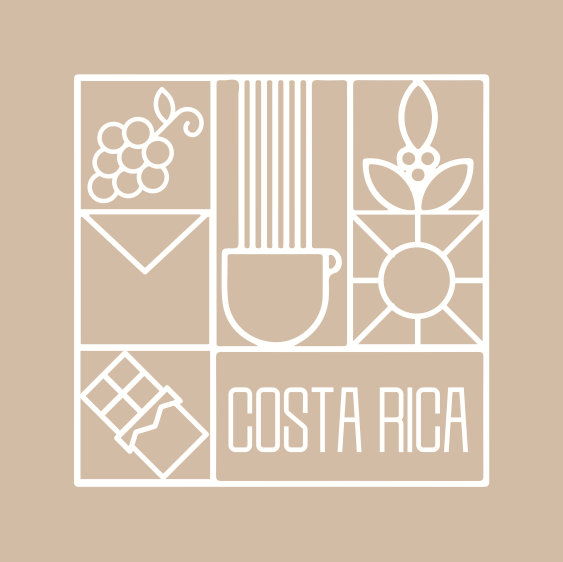MERAKI Artisan Coffee
Costa Rica Entre Rios Natural كوستاريكا انتري ريوس
Costa Rica Entre Rios Natural كوستاريكا انتري ريوس
Couldn't load pickup availability
Micro-lot
Passionfruit | Chocolate | Purple grape | Bubble gum
Farm: Aquiares Estate
Varietal: Marsellesa & Obata
Processing: Natural
Altitude: 1,100 to 1,400 meters above sea level
Owner: Robelo Family
Town / City: Aquiares
Region: Turrialba
Country: Costa Rica
محصول فاخر
الإيحاءات: باشنفروت | شوكولاتة | عنب
المزرعة: اكواريس
السلالة: أوباتا و مرسيليسا
المعالجة: مجففة
الارتفاع: ١،١٠٠ الى ١،٤٠٠ متر فوق سطح البحر
المُزارع: عائلة روبيلو
المدينة: اكيوارس
المنطقة: توريالبا
البلد: كوستا ريكا
Story Behind This Coffee
Entre Rios, translating as “Between Rivers”, is a delicate and versatile coffee which mixes two varieties from the same parentage to create a singular cup. These varieties are Marsellesa & Red Obatá, both originating through combinations of Timor Hybrid and Villa Sarchi. Aquiares has found the varieties very well-suited to the farm’s high elevation (grown above 1,100 meters in most cases) and great for marrying both high cup quality with strong resistance to disease. All Aquiares coffee is picked by hand to ensure consistent high quality. Micro lots, such as this one, are picked by a special team of skilled harvesters who are paid well above the daily rate for their exceptional skill in picking the ripest cherries at each pass. Each tree is visited up to seven times during the harvest to ensure that only fully red ripe cherries are picked. The skilled hands of the pickers represent the farm’s most valuable asset. Pickers hail from the community of Aquiares, nearby towns, and even from the neighboring country of Nicaragua. The farm ensures that all workers have a safe work environment and a comfortable place to live. Workers coming from further away can live in on-site housing and use a children’s day-care. The farm sponsors doctors’ visits for pickers and their families twice a week where nutritional health advice is also given. To take better care of its field workers, Aquiares has established first-of-its-kind physical therapy sessions and also a daily warm-up routine of exercise before work. Many pickers return each year, confirming success in providing a secure home in Aquiares.
As coffee cherries come from the field the same day that they are picked, they move into Aquiares’ wet mill. The farm produces fully washed coffees, honey processed coffees and naturals. This natural lot has been floated for density (with all floaters being removed). It has then been produced using a special Anaerobic Natural method. The coffee is delivered, while still in cherry, to stainless steel tanks for fermentation, as they offer the most cleanliness but also help maintain lower temperatures. They are located in a shaded, cool place in the mill, and are completely sealed with only a bubbler, which allows gasses to escape, creating an anaerobic environment within. Temperature and pH are checked twice a day, and once it reaches a pH of 4.3 (1-2 days), it is opened and the cherry is taken to the drying stations. For this lot, there are three stages of drying that the coffee must undergo. Firstly, Fermented cherries are pre-dried for 2 days on cool, clean ceramic floors. Next, cherry is taken to raised beds, where the temperature is kept between 28.C and 45.C for 10 days. Finally, the coffee is placed in a mechanical dryer known as Guardiola's' for the final day. Although Guardiolas are common in this wet, humid area of Costa Rica, the Robleos are always searching for new ways to innovate in processing and drying. For instance, they knew that drying was one of their main challenges in producing specialty coffee–particularly as they wanted to start producing honey and natural lots. According to Diego Robelo, “Everyone told us we were crazy. You are never going to make honey and naturals in Turrialba. We decided to prove them wrong.”The Robelos sourced a greenhouse from a neighbor in the region who had been producing roses and built drying beds according to specifications gleaned from other producers. After the first lots were dried in the greenhouse, thermometers and humidity gauges still showed a great deal of temperature fluctuations depending on the time of day and weather. To create a constant and even temperature in the greenhouse they installed an airflow system connected to their Guardiola system (used for commercial lots). Now, dry air of around 36 degrees Celsius circulates throughout the greenhouse, maintaining an even temperature. The New system works well, helps increase the drying capacity of the greenhouse and reduces variability in lots. Diego and his quality control team consider these steps just the first in perfecting processing at the farm.
Environmental Stewardship: Aquiares is strongly committed to and has become an international leader in, environmental sustainability. The farm has long seen the connection between agricultural, environmental and social health. By planting more than 50,000 shade trees, creating natural buffers around streams and water springs, preserving the river valleys as forest, planting along the contour, implementing integrated pest management systems and many other steps, Aquiares has demonstrated how to make ecological ideals a reality. For example, given that soil health is the most important factor for a successful farm, Aquiares takes many steps to naturally improve the farm’s volcanic soil. The organic matter from pruning and the leaf litter from the coffee and shade trees are left to feed soil microbes and provide organic nutrients. The diversified shade trees (over 40 species) also cool the ground, slowing the ripening of the coffee, which allows for sugars from the mucilage to be fully absorbed by the bean, thus improving cup quality. The farm’s agricultural objective is to find synergies like these, where environmental health translates into coffee plant health, which ultimately contributes to long-term stability in the production of high-quality coffee. The farm’s terrain varies from gently sloping to steep hills. Valleys between hills create microclimates that are ideal for growing mainly Caturra and grafted Arabica-Nemaya varieties. Although Aquiares is considered large under Central American standards, the farm believes that it is crucial to tend to every individual coffee plant’s needs. Therefore, Aquiares utilizes a system of pruning each plant independently, instead of pruning by row or lot.
Through an intensive rehabilitation program, Aquiareshas re-planted more than 400,000 coffee trees in small patches of existing fields. This rejuvenated the crop of trees and increased the land’s utilization. It also played a crucial role in the 2012 rust attack, as young plants resisted the disease better, slowing its spread. Its stringent environmental stewardship enabled the farm to achieve Rainforest Alliance Certification in 2003. In 2012, Aquiares became the first farm in Costa Rica to fulfill the requirements of the Rainforest Alliance Climate Module. This requires adhering to careful standards of greenhouse gas emissions and energy use, which are carefully tracked through each harvest season. This certification demonstrates that the farm’s low emissions do not meaningfully contribute to climate change. Aquiares has been home to research studies for decades, starting with early sociological studies in the 1950s. More recently, numerous scientific studies are conducted at Aquiares. In 2007, the farm was among the very first to try to calculate its carbon balance. Today, Aquiares is the main test plot for an ongoing project between the CIRAD Institute of France and CATIE University of Costa Rica. The “Carbon-Flux project”measures greenhouse gas exchange between the farm plot and the atmosphere over long-time horizons. This research station is the only one of its kind in the world, capable of accurately measuring the emission-sequestration balance of a hectare of shaded coffee. With this tool, the researchers are trying to develop a model that can be used by any coffee farmer in the world to estimate the carbon sequestration potential of his farm. This project is part of the Intergovernmental Panel on Climate Change research efforts. Also, since 2013 Aquiares has set up a program for Cornell University undergraduate and graduate students to find practical fieldwork experience at the farm. In this short time, the interns have already helped shape the farm's agricultural strategy and community relations. For example, one intern studied the community, and by interviewing town residents found increasing levels of type 2 diabetes as a result of an unhealthy diet. Following that research, another intern planned and developed a community organic vegetable garden; the farm donated land and women from the community-run the garden as a small business of their own.



